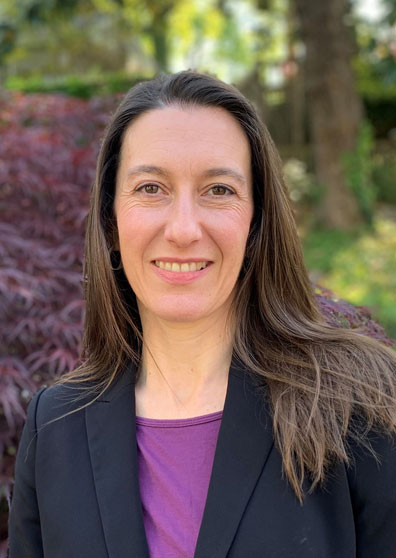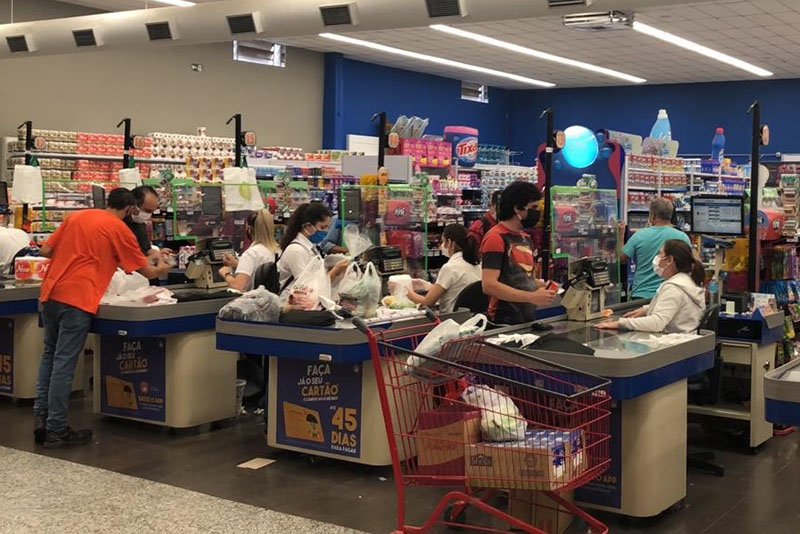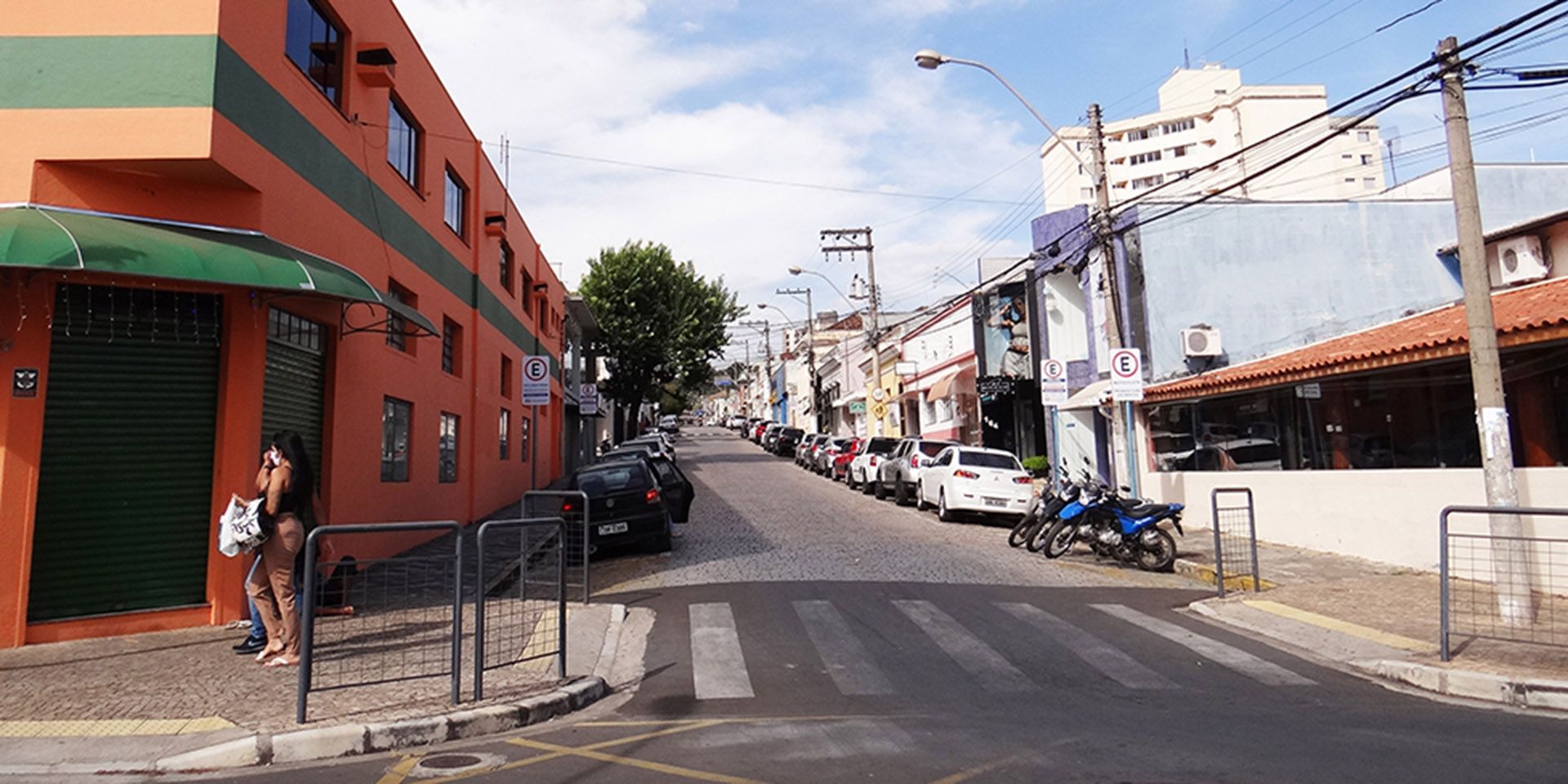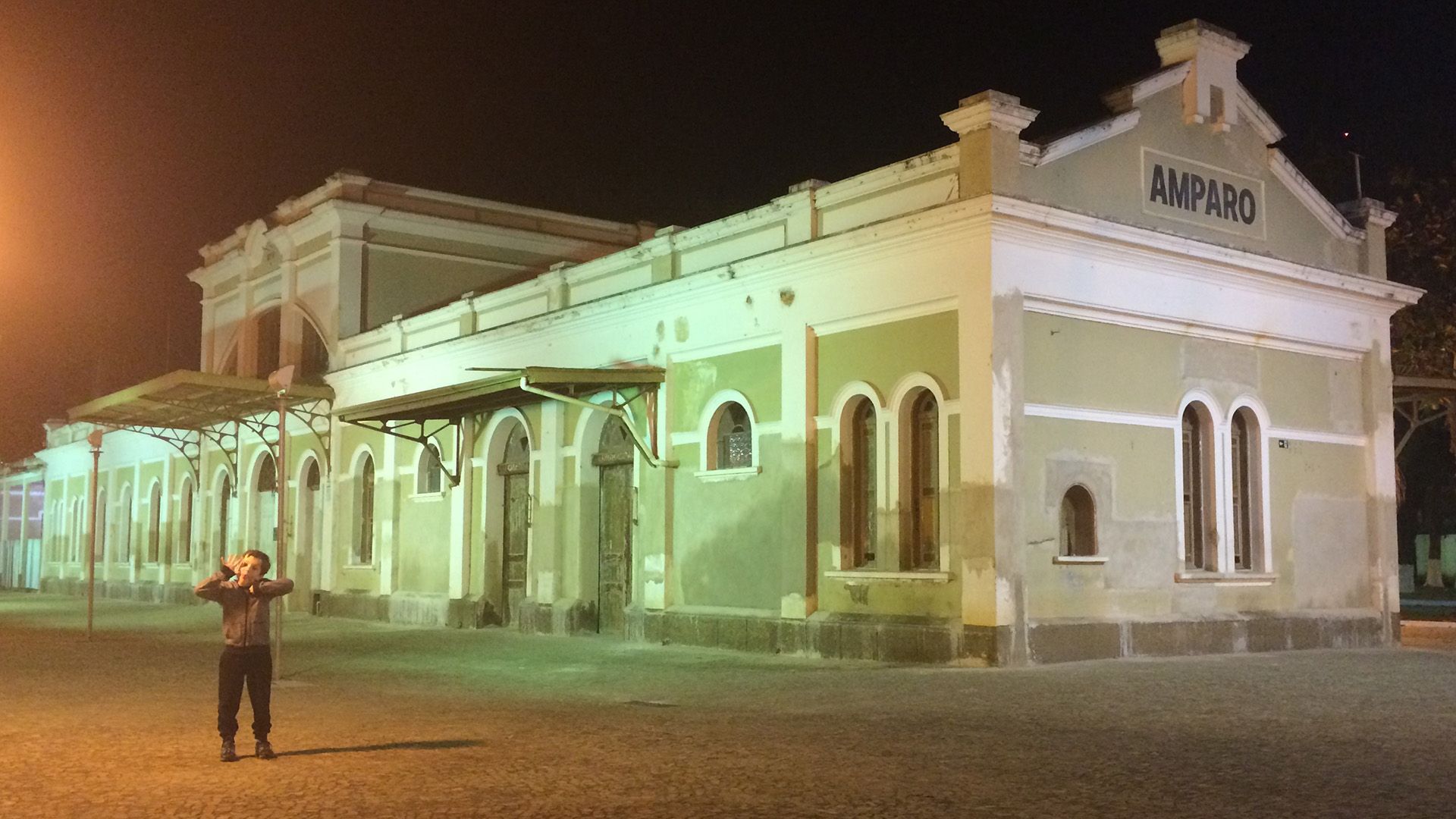By Inaê Riveras
Jairo Zanella Gutierres calls himself a “prudent” man.
The owner of a stationery store in the city of Amparo, Brazil, Gutierres expanded his shop over the last three decades by offering high-quality products and personalized customer service. He believes his cautious approach to management—always saving for hard times—has been crucial to helping his business survive innumerous macroeconomic crises. Whether this will be enough to pull through a global pandemic remains to be seen.
 The store has been shut for about two months to comply with a São Paulo state order aimed at containing the advance of the deadly COVID-19. No customers means no revenue. Gutierres is also dealing with the pandemic on a personal level: His brother was infected and is now recovering after having spent weeks in a hospital intensive-care unit.
The store has been shut for about two months to comply with a São Paulo state order aimed at containing the advance of the deadly COVID-19. No customers means no revenue. Gutierres is also dealing with the pandemic on a personal level: His brother was infected and is now recovering after having spent weeks in a hospital intensive-care unit.
“The situation is horrible,” Gutierres told me on a recent call. He said the survival of his business, which employs four people, would depend on him being able to get credit at subsidized rates. “Just like my brother needed a respirator, my store needs a respirator to breathe—and it needs it right now. But there’s nothing available, nor the prospect of having anything available.”
Gutierres is a friend and neighbor of my parents, who are in their 80s and have spent the last nine weeks confined in an apartment in Amparo, almost 5,000 miles away from where I live, in Washington, D.C.
“We never thought that, in our lifetime, we’d need to go through something like this,” my mom, Heidi Riveras, told me on one of our calls.
When I wake up in the middle of the night, I think of them and all of Amparo’s residents—and that’s why I picked up the phone to find out how the pandemic is reshaping lives there.
At the same time, access to cheaper credit is limited at the state-run bank, which is now struggling to distribute an emergency fund to informal workers, who make up more than 40 percent of the workforce in Brazil. In the entire country, more than 50 million people have applied to receive the benefit of 600 Brazilian reais (about $100) a month for three months.
As I researched the figures Auler mentioned, I started to understand that the economic impact on the city’s finances will be minimized by surging sales in a few sectors dominated by big players. (The largest sole payer of taxes to the city is a maker of cleaning products, for which demand is rising substantially.) The social toll of the pandemic, though, will be considerable, said Auler, considering the vast number of informal workers and the role that micro and small businesses play creating jobs.
The situation is also uncertain for the region’s smallholder farmers, who supply produce to local restaurants and schools. Buyers have disappeared, said Marcelo Toledo, President of the Rural Association of Amparo.
The Present—and Future—is Digital
On Amparo’s main shopping street, every day there’s a new “Passo o ponto” sign going up on a shop door, indicating that the business is for sale, Fernanda Barbosa told me a few days ago. She’s a family friend who works as the sales manager at BA Barbosa Supermercado Limitada, a regional chain with five stores. It’s one of the rare companies doing well. Barbosa said the group’s sales are rising as more people buy food and cleaning products.

Inside the Guarani supermarket, the use of face masks is mandatory for staff and customers. Photo: Fernanda Barbosa
That doesn’t mean things have been easy, though. Barbosa said the company had to reorganize quickly to adapt to the new reality. In the flagship 5,000-square-meter supermarket, only 100 people are allowed in at the same time. Face masks are mandatory, and hand sanitizer is offered at the entrance. Adjacent restaurants and snack bars have been temporarily shut down.
Barbosa explained to me that the most remarkable shift has been behavioral. Online ordering has skyrocketed. The store now receives up to 200 orders a day through its website, by email, phone, WhatsApp, and even hand-written notes.
“Many customers are enjoying home delivery and getting used to it. We think this is a trend that will continue, even after the pandemic,” Barbosa said. The company, too, is doing more of its wholesale purchases online.
The group is also planning to make changes to its restaurant when it reopens. “People used to come here not only to eat, but to get together, talk, and we think this will change, too,” said Barbosa—a remark that points to the profound cultural changes ahead and will likely upset many in town, including my parents.
Inaê Riveras, who is from Brazil, is an IFC communications officer currently on assignment at the World Bank.
Published in May 2020

